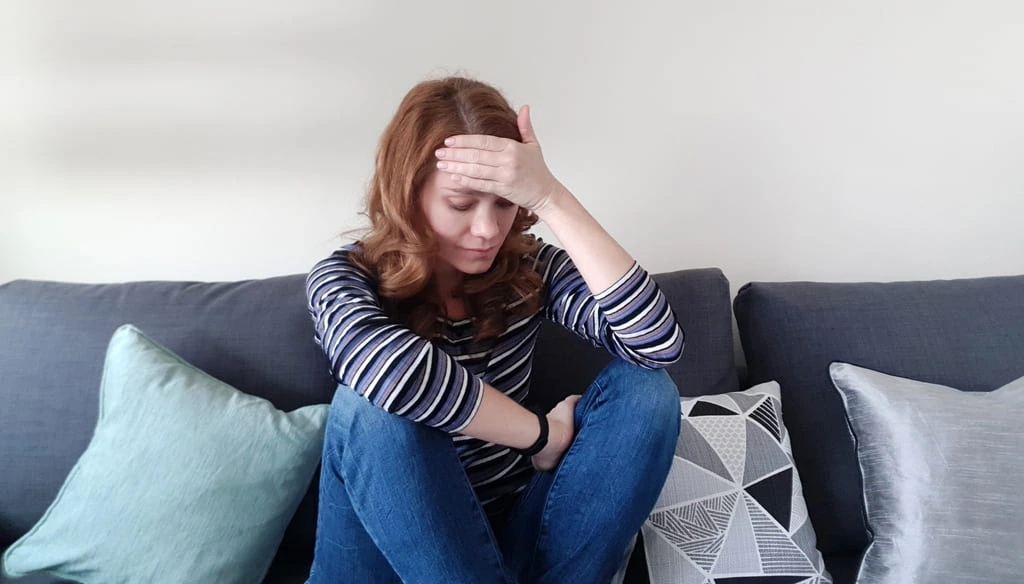Understanding Autistic Burnout
The autistic community defines burnout as a period of physical and emotional fatigue experienced by children and adults on the spectrum. This state usually occurs due to prolonged sensory overload and social pressure stemming from the overwhelming social and cognitive demands of a society designed for neurotypical people. The pressure to mask one’s autistic traits in most social situations culminates in intense anxiety and fatigue, rendering the autistic individual unable to manage daily life.
This phenomenon is caused by a complex combination of social factors, including sensory overload, masking autistic traits, and struggling to fit in with neurotypical peers. Recognising the signs of autistic burnout is the first step towards providing individuals on the spectrum with reduced expectations, sensory accommodations, and space for more rest and self-care.
How Do You Know if You’re Experiencing Burnout?
People experiencing autistic burnout may notice a significant decrease in physical energy and increased sensory sensitivity. During a period of burnout, many autistic adults find themselves unable to cope with previously manageable professional tasks, social interactions, and household chores. Sensory oversensitivity during burnout episodes leads to heightened stress and discomfort, which can significantly affect the individual’s mental health.
Burnout renders autistic people emotionally fatigued, easily irritable, and less capable of coping with mild stress triggers. Individuals on the autism spectrum also struggle with cognitive issues, such as challenges with executive functioning and decision-making skills. Due to burnout, individuals with autism may exhibit more challenging behaviours.
If you notice these changes in your or a loved one’s behaviour, it’s important to consult a professional to advise you on how to recover from autistic burnout. The recovery process should include tailored strategies for reducing stress and managing sensory input, which can also prevent autistic burnout episodes in the future.
The Impact of Autistic Burnout on Mental and Physical Health
Autistic burnout has a significant impact on the individual’s physical and mental health. When it comes to mental health, autistic burnout results in depression, anxiety, and increased stress levels. Overwhelming emotional and sensory experiences can heighten autistic people’s challenges with social interaction, making it harder for them to share their distress and seek help.
On a physical level, autistic burnout is characterised by increased sensitivity to sensory input, sleep disturbances, and chronic fatigue. The intense stress response during burnout episodes can affect the person’s immune system and put them at higher risk of various health issues. The overwhelming demands of burnout lead to neglecting healthy routines, which can worsen the individual’s health over time.

Taking the First Steps to Recovery
Overcoming a burnout cycle is a delicate process where the neurodivergent individual needs person-centred, holistic support from reliable experts. Humanised home care services offer a safe and understanding environment where autistic people’s needs are met, and their preferences are respected.
At Unique Community Services, our clinicians develop tailored plans that promote healing and well-being by validating experiences and promoting comprehensive self-care strategies.
Strategies That Can Help and Speed Up Autistic Burnout Recovery
Recovering from autistic burnout requires comprehensive accommodations. Care services help this process by implementing various strategies. After a burnout episode, people on the spectrum need self-care methods encompassing multiple aspects of life, including social communication, sensory regulation, and lifestyle adjustments.
Below is a list of the main measures to help a loved one during burnout.
Create a Calm and Sensory-Friendly Environment
Sensory oversensitivity is one of the main risk factors for autistic burnout. Therefore, individuals on the autism spectrum can benefit from a calm and sensory-friendly environment with special accommodations, such as soft lighting, soothing textures, weighted blankets, and noise-canceling headphones. Sensory rooms can provide respite for the autistic person struggling with burnout and replenish their energy during the healing process.
Validate Their Feelings
Healing from a burnout episode requires a non-judgmental environment where the person’s emotions and experiences are validated. Family members and carers should actively listen to the individual and acknowledge their struggles without minimising or trying to fix them. This approach fosters trust, improves the person’s self-esteem, and provides them with a sense of belonging.
Encourage Rest
Getting enough sleep and rest throughout the day is integral to self-care. It is helpful to create a to-do list that includes restful breaks and put aside certain tasks that make the person overwhelmed. Prioritising rest cultivates a healing and re-energising environment during the individual’s recovery phase.
Help Identify Triggers
Identifying triggers for burnout involves a reflective assessment of the person’s stress factors. These triggers may include excessive social demands, rigid routines, and sensory input. Careful observation and open communication are crucial in pinpointing the unique factors that lead to burnout. Removing triggers from the individual’s environment is the first step towards preventing future burnout episodes and promoting recovery.
Advocate for Their Needs and Offer Support
Neurodivergent people faced with burnout need unwavering support and advocacy for their needs. Family members and caregivers should create a compassionate environment for open dialogue and validation of struggles. You can create a better world for autistic individuals by amplifying their voices and ensuring their boundaries are respected.
Respect Their Need for Space and Privacy
Finally, autistic individuals struggling with burnout symptoms need to spend time alone and recharge without external pressure. Therefore, you should offer them a safe haven by respecting their privacy during these challenging times and giving them as much space as they need to recover from social overwhelm.
The Key Role of The Social Factor
Social interactions and relationships help minimise and ease burnout by fostering a comfortable environment for autistic people. In the company of supportive family members or friends, individuals on the spectrum feel free to be their authentic selves instead of masking their autistic traits. This way, they can preserve their energy levels and avoid stressful situations that lead to burnout.
Moreover, effective communication with loved ones helps autistic people set realistic expectations and boundaries in every aspect of their lives. Open discussions about personal needs, social preferences, and sensory sensitivities enable others to comprehend the challenges an autistic person might face and make accommodations accordingly.
Finally, the sense of belonging and accomplishment associated with meaningful social interactions plays a vital role in preventing autistic burnout. Engaging in beloved hobbies and sharing special interests with supportive peers is a healthy outlet for autistic people to relax and replenish their mental resources.
The Role of Therapists and Support Workers in Autistic Burnout Recovery
Therapists and support workers play unique roles in guiding neurodivergent individuals through the process of recovering from autistic burnout. Through various expert techniques, such as cognitive-behavioural therapy or occupational therapy, therapists provide autistic people with coping strategies to regulate their emotions, navigate social interactions, and manage sensory oversensitivity. By identifying triggers and stressors, therapists enable autistic individuals to make informed decisions about their activities and environments.
On the other hand, support workers provide at-home guidance and help individuals implement the strategies developed in therapy into their daily lives. Autism home care services offer personalised care services catering to the individual’s unique needs and preferences. Care providers in this sector maximise neurodivergent people’s independence and social integration by providing structured routines, social skills coaching, and sensory-friendly environments.
Unique Community Support Offers Autism Care and Support
At Unique Community Services, our mission is to offer humanised assistance for individuals experiencing symptoms of autistic burnout. Our clinicians are committed to delivering compassionate, person-centred care and dispelling stigmas associated with autism. With our home care services, individuals on the spectrum can avoid burnout or regain their executive functioning skills following a burnout episode.
In order to address the needs of autistic individuals during burnout, we collaborate with the individual, their family members, and specialists to evaluate their health status and personal boundaries. Our clinicians develop tailored care plans for each person we serve, ensuring that we provide dignified support in their own homes.
If you need a dedicated home care provider for yourself or a loved one recovering from burnout, look no further than Unique Community Services. Our trained care team delivers holistic home support to autistic individuals, with offices in Leeds and Manchester.
Contact us today, and we will design a personalised plan tailored to your unique requirements.
